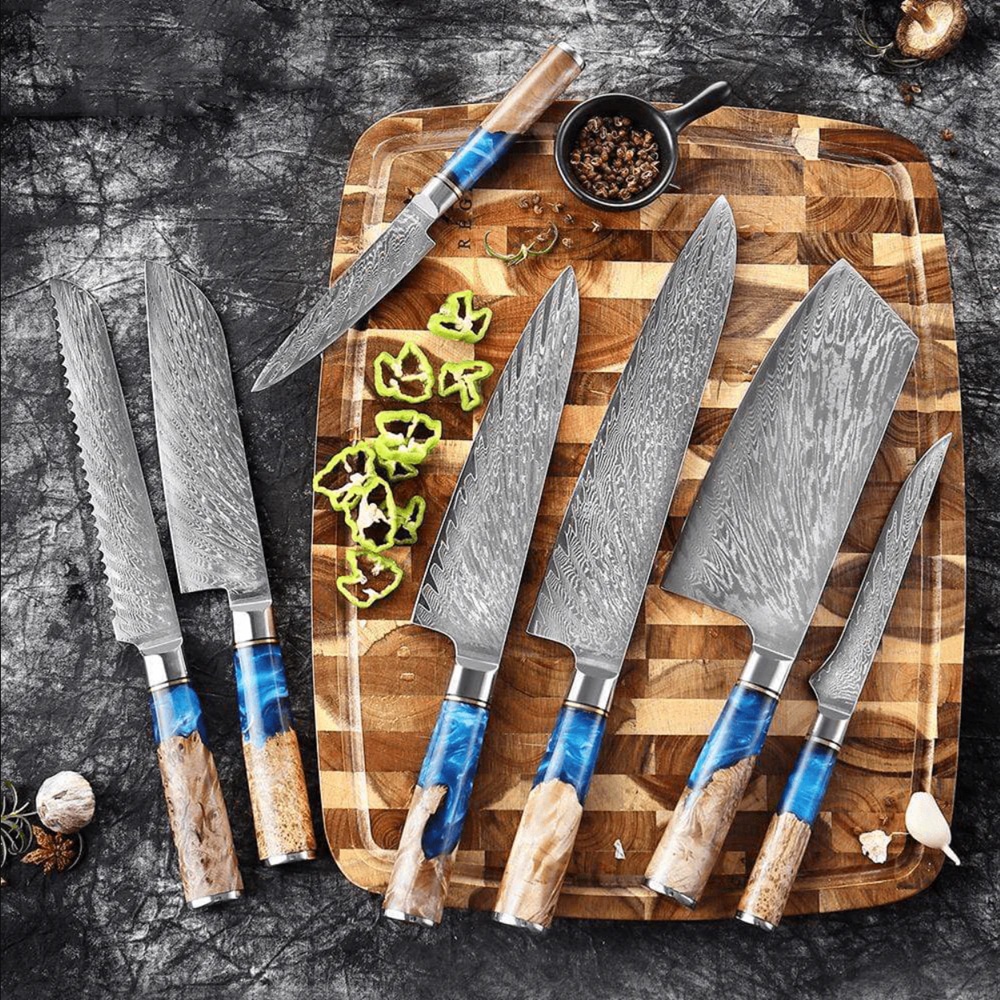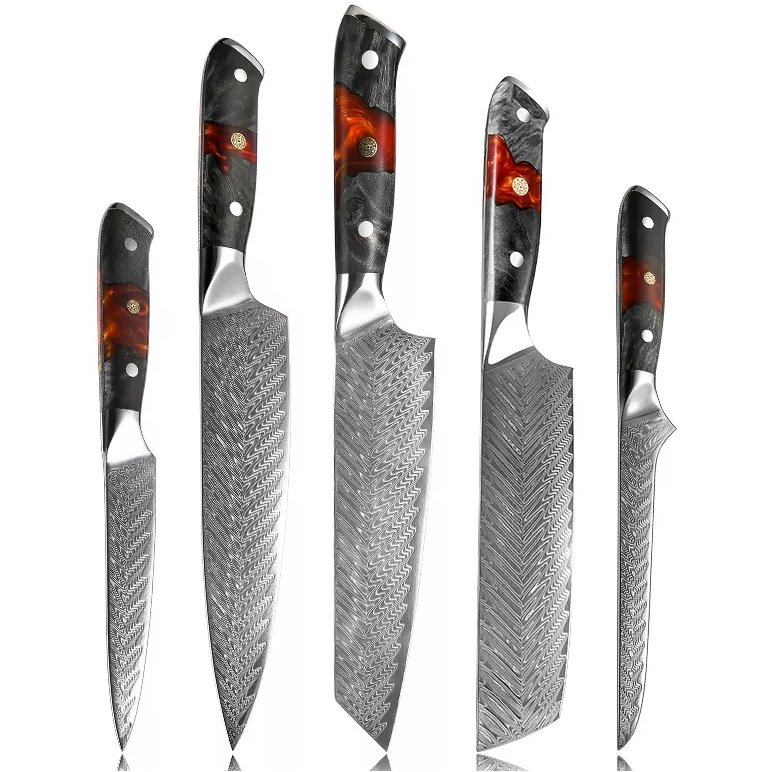Searching ...
Japanese Knives: The Secret Behind Their Sharpness, Tradition, and Popularity
Why Are Japanese Knives So Popular?
Japanese knives have long enjoyed extraordinary popularity among both home cooks and professional chefs around the world. This popularity stems not only from their renowned sharpness and precise craftsmanship, but also from their rich history and cultural significance. The traditional Japanese art of knife-making dates back to the era of the samurai, when great emphasis was placed on perfect blade geometry and the quality of the steel used.
Modern Japanese knives combine time-tested historical methods with innovations tailored to the needs of contemporary gastronomy. As a result, they are not only incredibly sharp but also ergonomically refined, which significantly eases kitchen work.
If you need reasons to give Japanese knives a chance, here is a short overview:
- Exceptional sharpness and a longer-lasting cutting edge.
- Meticulous handcrafting with attention to detail.
- Ergonomic design for comfortable handling.
- History and tradition that imbue each knife with a unique character.

A Brief History of Japanese Knives and Their Traditional Craftsmanship
The origins of Japanese knives can be traced back to the period when swords were crafted for samurai. Generations of blacksmith families passed down their secrets and production methods. This process involves the manual working of high-quality steel, which is layered, melted, and repeatedly folded to create the final blade. This ensures the carbon is evenly distributed throughout the steel and delivers the necessary strength.
An important part of traditional production is the hardening of the steel, which affects the blade's final hardness and flexibility. Sharpening is often done on water stones and requires considerable skill, as the perfect sharpening angle can be crucial for achieving the desired sharpness. Nowadays, modern alloys are frequently used in the manufacture of Japanese knives, but the essence and craftsmanship remain unchanged.
Differences Among the Most Common Types of Japanese Knives
When choosing a Japanese knife, many people find it challenging to navigate the wide range of available types. Each type is optimized for a specific use, so it helps to know the fundamental differences.
- Gyuto – The Japanese version of the classic chef’s knife. It is versatile and suitable for cutting meat, vegetables, and other ingredients. It has a longer blade with a slightly curved edge.
- Santoku – One of the most popular Japanese knives. The name “santoku” means “three virtues” or “three uses” (cutting, chopping, slicing). It has a wider blade, is shorter, and is very well balanced.
- Nakiri – Primarily specialized for cutting vegetables. It has a straight, almost rectangular blade that allows for easy chopping and precise dicing.
- Deba – A thick, robust blade suitable for processing fish (removing heads, filleting) and smaller cuts of meat. It can also be single-beveled, requiring more skill in handling.
- Sujihiki – A long, thin knife ideal for portioning and filleting meat or fish. Its narrow blade also makes it well-suited for slicing thin pieces or sashimi.
- Yanagiba – A traditional sashimi knife with a long, thin blade, often single-beveled. It allows for a smooth pull when cutting fish fillets.
- Usuba – Similar to the Nakiri, but more professional, intended for fine vegetable work and creating thin slices.

How to Recognize Quality Japanese Knives and What to Watch for When Choosing
When purchasing a Japanese knife, you should first consider the quality of the steel and how the knife was made. A reputable brand or a manufacturer with a long history often guarantees meticulous, artisan-level craftsmanship. Focus on:
- Steel – High carbon content and a quality alloy are key to durability and exceptional sharpness. Some higher-end knives use “Damascus” steel with multiple layers.
- Sharpening Method – Japanese knives are sharpened at a smaller angle (around 15°), making them sharper but also requiring more delicate care. Sharpening on water stones is the best way to keep the blade in perfect condition.
- Balance and Ergonomic Handle – For professional use or extended cooking sessions, it’s essential that the knife doesn’t weigh you down. A well-balanced knife with a comfortable handle greatly facilitates your work.
- Single vs. Double Bevel – Some Japanese knives (e.g., Deba, Yanagiba) have a single bevel. They require a precise cutting technique and can be more demanding to maintain. Beginners are often advised to use double-beveled knives (e.g., Gyuto, Santoku).
At the online store HARAHU.com, you’ll find a wide selection of knives from various manufacturers. For each product, we provide detailed information about the steel, blade profile, and recommended care.
Conclusion – Article Summary
Japanese knives are synonymous with uncompromising sharpness, precision, and a longstanding tradition. If you are looking for a knife that will help you achieve perfect cooking results, you should definitely consider Japanese knives. When choosing, keep in mind the quality of the steel, the sharpening angle, and the knife’s ergonomic features. The variety of Japanese knife types available allows you to pick precisely the one you need for your culinary ambitions.
Visit HARAHU.com to discover a wide range of both traditional and modern Japanese knives. Choose a piece that will become your indispensable companion in the kitchen.